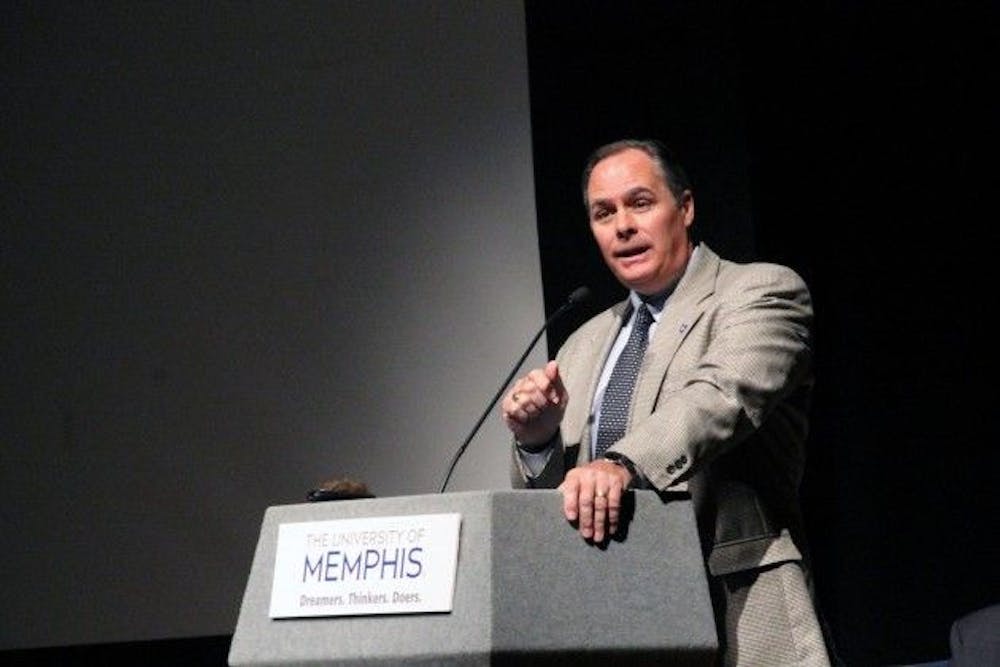The interim President of the University of Memphis R. Brad Martin said the University would no longer be business as usual, changing its model to be more competitive.
"We cannot rely on raising tuition as a sustainable business model," Martin said at a town hall-style meeting on Thursday, adding the emphasis of the change was about increasing enrollment and attracting more students to the U of M.
President Martin and Provost David Rudd answered the majority of questions asked by students and faculty. Rosie Bingham, vice president of Student Affairs, and David Zettergren, vice president of Business and Finance, were also available for questions.
According to a PowerPoint slide presented by Martin, when the University fails to recruit a student or loses a student to poor performance, transferring or dropping out, it is penalized twice financially. Since 2011, the University has seen a drop in enrollment of about 1,500 students - one of the contributing factors in the $20 million budget gap.
The University is also incorporating new strategies to get students to graduate within a six-year timeframe. Only 46 percent of students currently graduate within that time, and the administration said they want to increase that number to 55 percent.
"When all is said and done, we still have a $20 million gap," Zettergren said.
Cedar Nordbye, an art professor, raised concerns about the University being run as a competitive business, as Martin presented it.
"I don't see the University as a competitive business. I think that's the wrong ideological view, that's the wrong societal view," Nordbye said followed by applause from the audience. "The universities in this country are a crucial branch of civic life in a democratic society."
Schools run competitively with business models are "just how the world works now," Martin said, also preparing students for the world outside of college.
"Saying we do not want to be bound by metrics is a losing proposition," Martin said. "We have to be willing to embrace metrics."
The U of M plans to take a focus to education majors with an emphasis on K-12 education. Martin also said the College of Education is interested in starting a dual-enrollment high school, catered to those interested in teaching, in order to put the University on the map as a premier higher education institution for K-12 education.
Kaeyla Willis, a senior fashion merchandising major, asked if students would be able to have input in redesigning courses and suggested increasing student involvement in the process.
"We target underperforming courses in terms of redesign," Rudd said. "It's not deleting old and inserting new courses. We're simply looking at how we can effectively deliver the curriculum to meet the needs of our students."
Courses considered to be underperforming are those with more than half of students either failing or dropping out of the course altogether.
"I don't know if we've had students directly involved in the development of courses," Rudd said. "It's a great thought."
Martin said the University also wants to consolidate tuition for incoming students from other states.
"We want one tuition," Martin said, suggesting doing away with the out-of-state tuition. "We want the ability to attract people here."
The next town hall meeting is from 1:30 to 3 p.m. on Friday in the Michael D. Rose Theatre on campus.




